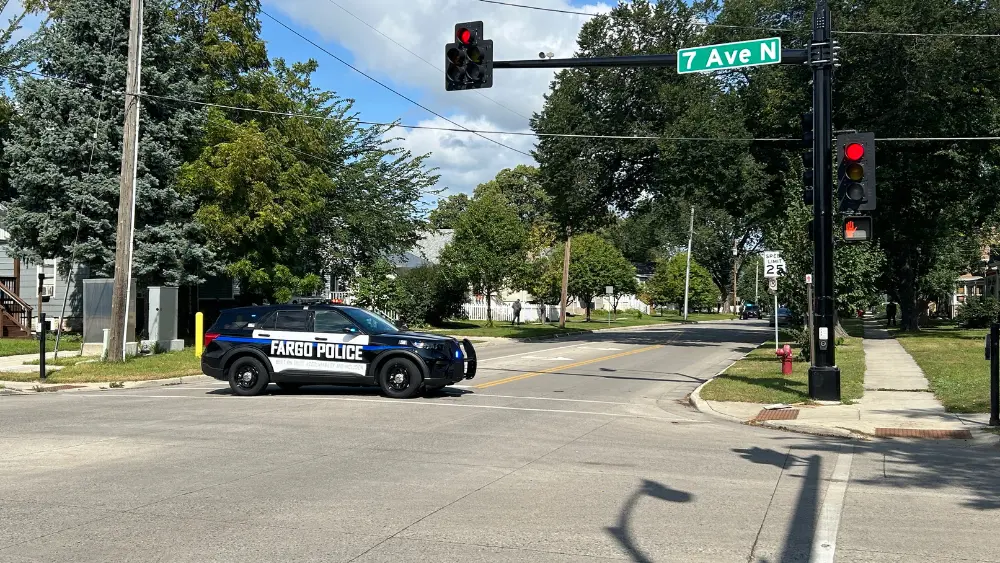MOORHEAD, Minn. – A Moorhead Fire Department battalion chief is hoping a greater effort will be made to hold mental health checkups for firefighters and paramedics to cope with the ongoing stresses from the job.
“It goes unreported,” Battalion Chief Matt Brand told The Flag when it comes to post-traumatic stress disorder among first responders.
“I don’t know that we see a lot of diagnosed post-traumatic stress, but we do see all of the symptoms that go with being a first responder.”
According to a published study, 20% of first responders experience PTSD at some point in their careers compared to less than 7% of people in the general population.
Brand says firefighters get “wrapped up in the adrenaline” during responses, but the stress can build up over the years leading to sleep disorders, burnout, anxiety and depression.
“[The adrenaline] protects your in the onset [of a response],” said Brand. “It doesn’t hit you until later when you realize the magnitude of a lot of the stuff that you see.”
Unlike Fargo and West Fargo, which require annual mental health evaluations of first responders, Moorhead does not.
Brand says the issue is state-related. Minnesota requires collective bargaining between firefighter unions and municipalities to come up with work contracts.
Brand says any mental health wellness checks would have to be added during those contract negotiations.
“Treat it like it’s your whole body checkup,” said Brand. “We’re checking your heart, lungs, cancer. All things that come with a physical checkup. We just really think it’s time to start pushing the mental checkup also.”
But Brand says getting to that point is a little more complicated than simply establishing checks through a contract.
“Because of the mental health stigma, a lot of firefighters are worried that if they get red-flagged, that would mean they no longer have a job,” said Brand.
However, Brand says because crews often spend several 24 hour shifts together, firefighters “process things as a group, so do you see and feel when things aren’t right.”
“We are making strides,” said Brand. “We’re getting better, but you still have that stigma with mental health.”





